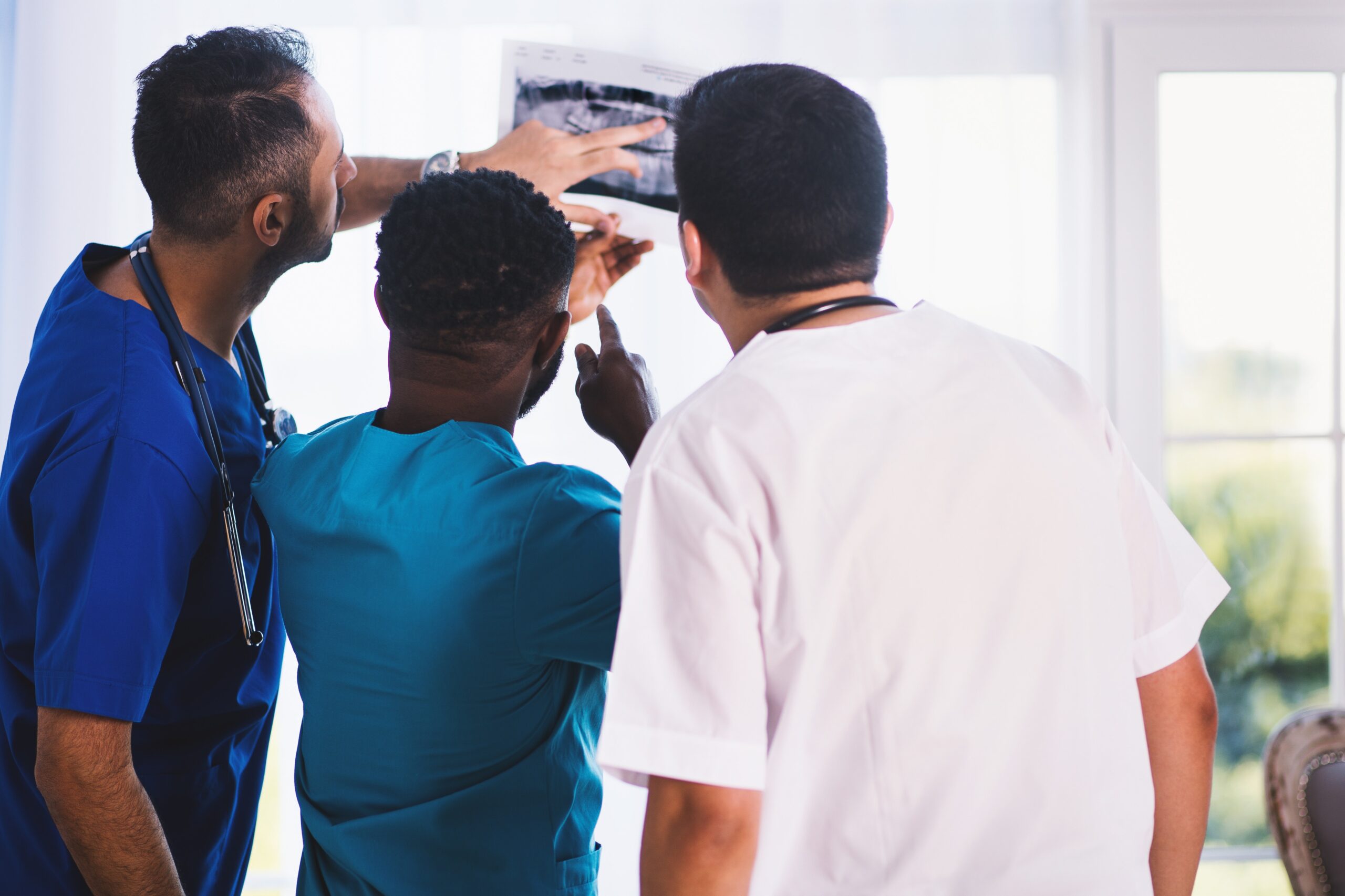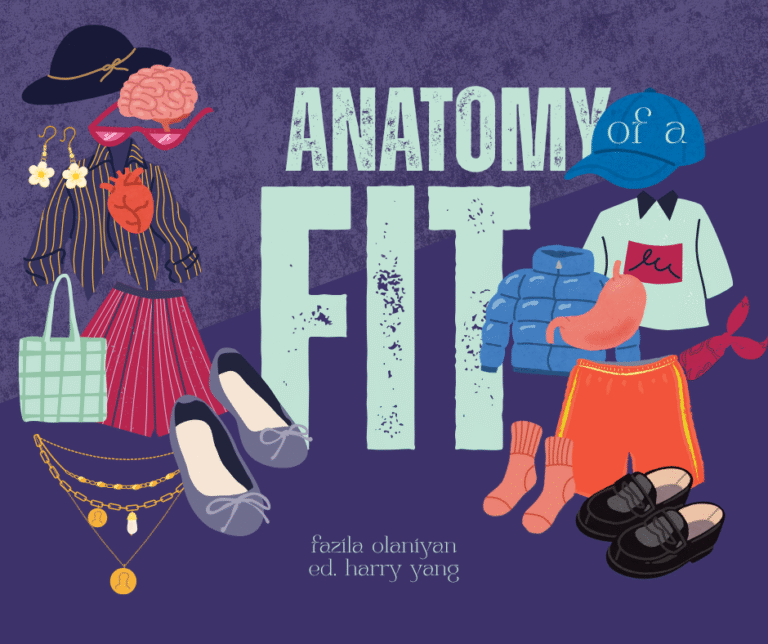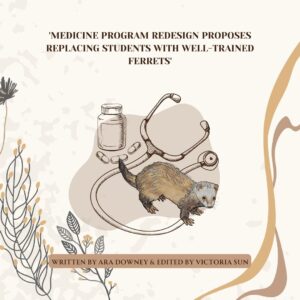
by KEERTI PAIDA, MASHAAL HAMAYUN & JUMAANA ABDU
A while ago, The Jugular explored motherhood in medicine, and fatherhood is no less momentous in marking a new stage in someone’s life. However, there is a historical disparity in the way working men and women have incorporated children into their lives, whether by choice or by the allowance of policy. As such, The Jugular has decided to ask some male doctors – who became fathers in different decades – for their insight into work-family balance, and the way fatherhood affected their life and medical practice.
Professor Richard Harvey is an UNSW alumnus from 1996 who now heads the Rhinology & Skull Base Surgery department at the Applied Medical Research Center of UNSW. A leader in his field, he practices in Sydney at Macquarie University and St Vincent’s Hospital. He has two children: a son and daughter born after becoming a consultant.
Dr Esam Abdel-Megeed graduated in 1973 from Alexandria University, Egypt and completed GP training 1976-1979 at Liverpool Hospital, Sydney. Since then, he has been working as a GP at the two clinics he and his wife opened in the Western Suburbs. He has three children: a daughter (1974) and two sons (1979, 1981).
Dr Jeremy Robertson spent 10 years as a commercial pilot, but after a diagnosis of DM1 at the age of 31 embarked on a career shift. 9 months before beginning postgraduate medical degree, Dr Robertson’s first son was born (2011) and his daughter was born in his third year (2014).
Do you think current policies regarding parental leave are supportive? What changes are required?
Harvey: It’s very difficult for me to comment because as a surgeon, and most surgeons in NSW who work within our public health system do so as consultants and VMOs (visiting medical officers), there’s no allowance for paid parental leave. It’s partly seen as job within the social health system but since it’s not a salaried job, a lot of the rights and entitlements that come with a full time salaried position don’t apply. So our income is not being derived from the salary of a VMO but often comes from our private practice. You really are a sole trader in terms of businesses so there’s no one who’s going to cover for your paid parental leave.
Abdel-Megeed: When I had children, back in the mid ‘70s to early ‘80s, men couldn’t officially take time off. There was no paternity leave, only maternity leave, which was 12 weeks of paid leave.
Robertson: Something you probably don’t know – you can do your internship part time by applying as a job shared intern! During the internship application process, I found someone, we nominated each other, coordinated an identical stack (list of hospitals) and applied. It’s a pretty finnicky process and special considerations are constrictive but honestly, worth it. I think there definitely needs to be significant recognition by both the university and HECI that the average age of the medical graduate is increasing. The majority are postgraduate, and being a junior doctor aligns more closely with that part of our lives. I think the current system doesn’t really have the flexibility to reflect that.
Did you take any time off when your children were born?
Robertson: I was really lucky with my son! He was born nine months ahead of first year medical – it set a fantastic foundation for our relationship. It was blind luck that my daughter was born on the last day of first sem in third year. So one week off, in addition to the other week taken due to pregnancy complications – none accessed through formal leave. Having heard from colleagues about nightmarish administration regarding parental leave, I just didn’t tell the university. Missing a week of ward rounds was not a huge deal.
Harvey: Very little. For me it’s very easy because I have a wife that’s happy to play a more traditional role and raise our children. But it’s challenging if you have both partners who are career-orientated or if you are a female surgeon as I think the contracts are very similar so the allowance is not even there.
Abdel-Megeed: Shortly after my last child was born in ’81, he fell really ill with meningitis. Luckily by then, my wife and I had our own GP clinic, so I didn’t need permission to take paternity leave. He was really frail at the time, always crying, needing constant attention and assistance. It would have been too much, too unfair, to leave it all to my wife. I felt an obligation to alleviate some of her stress, so I took a month off to nurse him back to health, and I was happy to do it. I think back then, male doctors with a private practice didn’t feel the need or couldn’t take time off, but it was easy for my wife to take over our clinic because she is a GP too.
Have you experienced discrimination in the workplace on the basis of your fatherhood?
Robertson: Haha no! 99% of people are surprised because they didn’t know you could do JMO part time and wish that was available when they were interns. There was only one senior neurosurgical registrar who suggested I should be hitting the doctor years hard to progress – but that was just an opinion, I’ve never had anyone discriminate against me.
Abdel-Megeed: Not at all. I don’t recall my wife facing any discrimination either. She was in training when we had our first two children. If you took time off to have children, you’d just have to make up the time that you missed.
Harvey: I haven’t, I don’t think. I had children relatively late in life, not out of design but how my life unfolded. I would have had them earlier if I could. I’m aware that there may be assumptions – I’m a male surgeon, I’m committed and on call, I run a busy practice and I have a wife who stopped working when we had children – that I might be less involved or distant as a parent. But to me, being able to commit time with family and doing things with them is very important.
There’s a perception that doctors prefer relationships with doctors. If you have a partner, what profession do they work in? Has this made your work easier?
Harvey: She worked in HR, admin, owned a hairdressing salon at one stage – everything except medicine. And I think she’s been a way better choice of a life partner because she is very relaxed about it and doesn’t see some clear distinction between the two worlds. I think like any busy person your partner has to be comfortable to do their own thing. If I miss dinner so be it, that’s what happens, let’s move on with it. I don’t think it takes anything away.
Abdel-Megeed: A lot easier. There is so much commonality, so I find the level of conversation we have is stimulating and easy. And both of us understand the other’s commitments. If we need to spend time away from home because of work, or take night-shifts or go on-call, we understand the other’s situation fully. Also, being able to cover each other at work is invaluable, as I said earlier.
Robertson: When we got married, my wife thought she was marrying an international airlines pilot – so I guess she didn’t get what she signed up for! She works in international public health and likes that I’m home every night whereas I wasn’t before.
As a parent, how do you maintain balance between career and family? Do you every struggle with the emotional toll work may take at home?
Abdel-Megeed: It was hard sometimes; we had just moved to Australia and were still completing our medical training while raising our first two children, and then we were opening up our own clinics when we had our third. Sometimes we felt we wanted to be spending more time with them, but we were also working hard to support them. We always organised regular, good quality holidays for the children, and made sure we had great fun with them. It was a kind of compensation [laughs]!
When it comes to the emotional toll, this is our life as doctors, to see injury, death, severe sickness…Once you go home, you just try to focus on family. Of course, it’s important to feel for the patient, but you can’t let that stress and emotion out on your wife or children.
Robertson: Both of us work part time on fortnightly schedules – I work one week, she works the other. Our parents live a couple blocks away and there’s always someone for school pick up and drop off. Since I’m working part time, it never becomes overwhelming. Even when I’m having a really awful week/term, I have a week off to regroup. If I were full time and parenting, I think I would have ended up really reconsidering my use of time.
Harvey: As a trainee, I dated a girl (who’s not my wife now), and I’d operated on a patient for an appendectomy. My boss at the time called me about 7 or 8 o’clock at night, and asked me how it all went. I was in the middle of a dinner, picked up the phone, gave him the debrief and went back to dinner. I wasn’t concerned at all by the interruption but it completely took her by surprise because her workplace had a clear distinction between what was work and certainly didn’t call employees at home and asked them how things were going! And I think that’s one place where medicine will never… there’s no clear distinct personal and professional realm and you have to become comfortable with that. I think as a surgeon you have to accept the fact that you operate on people and you can’t just simply not be contactable, I think you take a responsibility there.
How did your children change your perspective on your work?
Harvey: Having children is the best thing ever! And when I give advice to trainees and researchers working with me I encourage them to have children earlier. There’s no time when they’re convenient. They’re an interference to your life regardless what stage they come (laughs), but they are absolutely…
I used to travel a lot for academic reasons but there came a time in the last couple of years where I was almost at the airport and I would already miss the kids – another weekend where I was off speaking at a conference. I became very conscious of that, and when they hit about three they were also conscious of the fact if I was missing. So I decided to take my son and daughter with me a couple times. You usually have only one or two commitments and the rest of the time you’re sharing your room with your kid and it becomes quite good bonding time.
Now, when I’m to present some research work, I’m not prepared to do it just anywhere. It makes you weigh up the opportunity cost because you don’t have much time. That’s your biggest enemy. Your one limited resource. You only have a fixed amount of that you’re never going to get back.
Abdel-Megeed: I did get more emotional, especially with cases involving children. I remember after we had our first child, my wife was treating a young girl with leukaemia and she just started crying. The mother was crying beside her child, who was only 12 and dying, and she couldn’t help but feel for her as a parent. But you have to brush it off quickly because of the workload and the responsibility to not get too emotional in front of the patient. You learn to show sympathy while remaining composed even if inside you’re upset.
Robertson: They cause a monumental shift in your priorities. I started med school fairly naively – I’ve done two other degrees, I figured it’s just another degree. Boy was I wrong! I don’t remember the first month of the medical term after my daughter was born! It was a complete haze of broken sleep, crying… possibly one of the hardest periods of my life. At the end of fourth year, I was studying for finals for four months 8AM-4:30PM, teaching myself the syllabus on nights and all I had with my children was 30 minutes in morning and 1-2 hours in evenings total.
A moment that stands out to me was a dinner with my then 18 month old daughter. My wife pointed to herself, – “Who’s this?” She said “Mumma”. She pointed to our son – “Who’s this?” She said “William”. My wife pointed to me – “Who’s this?” She said “Man.” That moment (amongst others) was crushing. Even though you are balancing things out to the best of your ability, the workload required just doesn’t allow you enough time with a young family. And this was considering that I had studied to the point of adequate marks and was by no means an excellent academic student.
Final words of advice?
Robertson: Medicine put a real strain on my relationship and had me reconsidering how I wanted to spend my time. I can say this now as someone that’s 40 and a resident – that there is absolutely no rush! Medicine is a long road, worth it to take a year off to travel, locum, SRMO because you’re not sure on a specialty. I see specialists in early to mid-thirties who have done nothing but work hard, but haven’t got as much around them as they could. Remember – other life experience helps make you become a better doctor!
Harvey: I think the implications of having kids later in life are much greater, especially financially. When you’re a surgical trainee it’s often just you, you’ve got a salaried job, there’s a bit of overtime but that’s it. You’re not really reliable for anyone else. Once you start a practice, all of a sudden you now may employ 4-5 people, who rely on you for their profession, livelihood and wellbeing. In saying that, surgical training now has a much greater emphasis on flexibility. You shouldn’t let your career choice dictate all of that. Let your personal life dictate all of that.
Abdel-Megeed: Make sure you spare time for your children during your career. Family is the most important thing, and your children only grow up once. It’s your responsibility make sure your children are growing up emotionally and physically healthy, that they’re not relying on other services to raise them up in place of you. Even if you have a nanny, it’s still your responsibility to play with them, talk to them, listen to them. Don’t put all your effort into helping people at work and forget your own children.
Responses have been edited for length and clarity











































































































